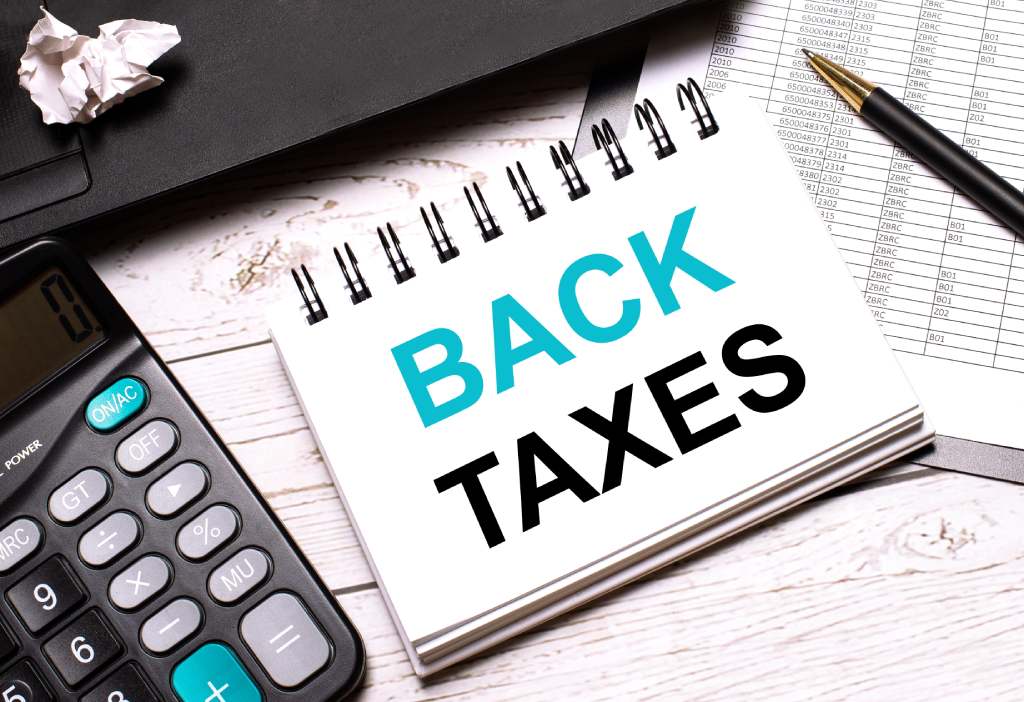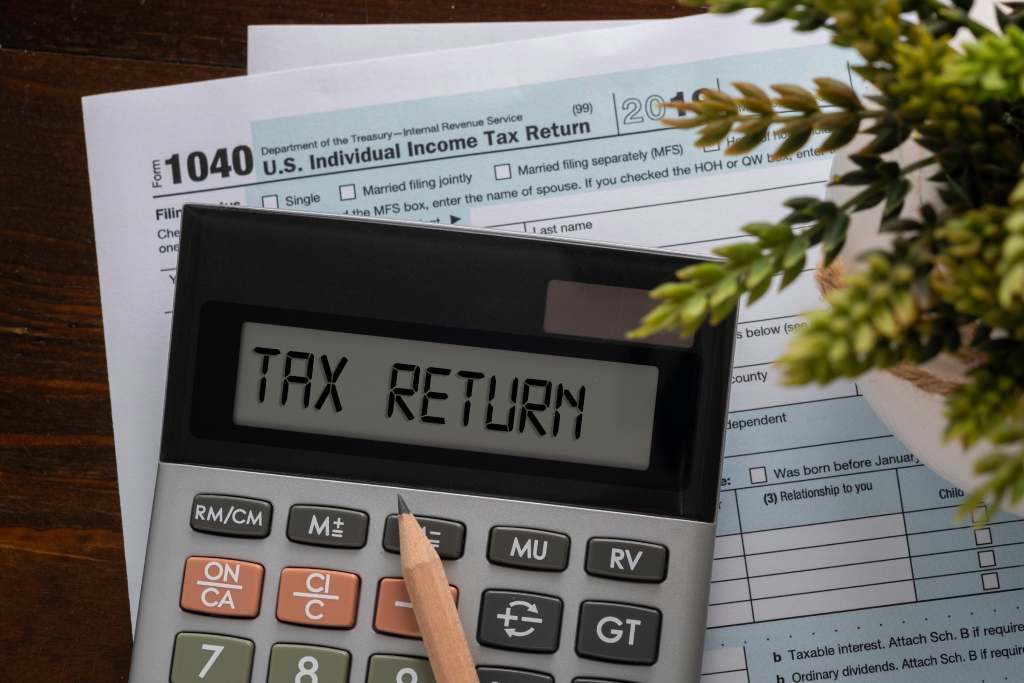
Tax debt can be complicated. But when you want to take back control of your finances, paying overdue tax is a priority. This means paying what are known as “back taxes”.
How do back taxes work, though, and how do you know what you owe the IRS? If you have such questions, don’t worry. We’re here to answer them. Below, we’re exploring everything you should know about back taxes and how to file them.
What Are Back Taxes?
Back taxes are, simply, taxes you didn’t pay in the tax year they were due. They’re also known as “delinquent taxes” or overdue taxes.
Unfiled back taxes can be partial, meaning you only owe part of the amount, or full, meaning the whole amount is outstanding. You could also owe back taxes for more than one year.
Do I Owe the IRS?
Before filing any paperwork, you need to know if you owe back taxes at all. The good news is that it’s easy to check whether you owe back taxes. Here are the most common options.
- View your tax account online through the IRS website.
- Check your past year’s return. There may be interest or penalties for overdue taxes.
- Double-check you haven’t received correspondence from the IRS about tax debt. This would be through a mailed notice, not email.
- Ask a tax professional for advice on checking for back taxes.
Keep the process simple by reaching out to our team for help with back taxes.
Consequences of Back Taxes
Tax debt can have serious consequences for everyone, whether you’re an individual or small business owner. Back taxes can lead to:
- Failure to pay penalties and interest
- Garnished wages (a court order seizing part of your wages)
- Tax liens (a type of security over your property)
- Lower credit score
- Seizure of property or bank accounts
If you have any concerns about a tax bill, it’s crucial to handle it head-on. Don’t let tax debt overwhelm you. Contact our team to explore your options for managing the situation.
Do I Always Need to Pay Back Taxes?
If you owe tax debt, you usually need to pay it. And you should always file back tax returns.
Tax debt may, eventually, be written off by the IRS. This is normally after 10 years. However, you could face significant penalties and enforcement action in the meantime.
Could I Be Due a Refund for Back Taxes?
Yes. This is another reason why it’s so important to file your unpaid tax bills. There’s always the chance that the IRS owes you a refund!
You only have three years from the return due date to claim your refund. And you must file the return within the three-year window or else you’ll lose any refund you may be due.
Unsure if you’re due a refund for previous years? We can help you file your return for taxes you owe, and claim your refund.

Filing Back Taxes
Ready to file back taxes? Hiring a tax professional is recommended. They will ensure that you complete all overdue returns and understand exactly what you owe.
Alternatively, start by filing your back taxes the same way as you file on-time returns. Complete a prior year’s return and file it normally. Even if you don’t have the money to pay the bill, you should still file the back tax return itself.
If you can’t find a prior-year form that goes back far enough, contact us for more advice.
How Far Back Can I File Delinquent Taxes?
You should file any overdue tax returns, no matter how far back they go. If you don’t, there’s always the risk that the IRS could take enforcement action against you.
Give yourself peace of mind and file any outstanding tax returns.
What Happens if I Can’t Afford to Pay Delinquent Taxes?
First, don’t panic. Just because you can’t pay yet doesn’t mean you shouldn’t file your return. And there are options for managing overdue tax payments. It’s just a matter of exploring which solution works best for you.
No two back tax scenarios are the same. Your options might include:
- Installment Agreement: The IRS agrees to accept installment payments rather than a lump sum.
- Offer in Compromise (OIC): You can pay back less than the full amount you owe if the IRS agrees to an OIC.
- Penalty Waiver: The IRS waives certain penalties and interest on overdue tax bills.
There may be significant consequences if you don’t keep up with a payment plan or OIC. Don’t agree to any payment options without consulting a tax professional for advice first.
Prepare to File Your Returns
Back taxes can quickly add up, especially if they run over more than one year. Over time, you might find the debt unmanageable.
When tax bills rise, it’s natural to panic and avoid dealing with the problem. However, that only prolongs the situation and makes it worse. Deal with your federal tax liens and back taxes by:
- Checking your records to see exactly what you owe
- Filing any delinquent tax returns
- Looking at your income and outgoings to see what you can afford to pay
- Negotiating a payment arrangement with the IRS
IRS offers can be complicated. You may be unsure which option is right for you. We strongly suggest getting tax advice before negotiating a payment arrangement. Otherwise, you could end up committed to paying more than you can afford.
Get Help From Tax Professionals
Do you need help with back taxes? Take control of the situation today. Turn to our tax professionals. We can explain what you owe, discuss your options, and negotiate with the IRS for you.
Our first consultations are free!
We will ensure you feel empowered to manage your tax debt. Don’t feel like you must face the stress of back taxes alone. Contact us now to get the tax support you need and deserve.
